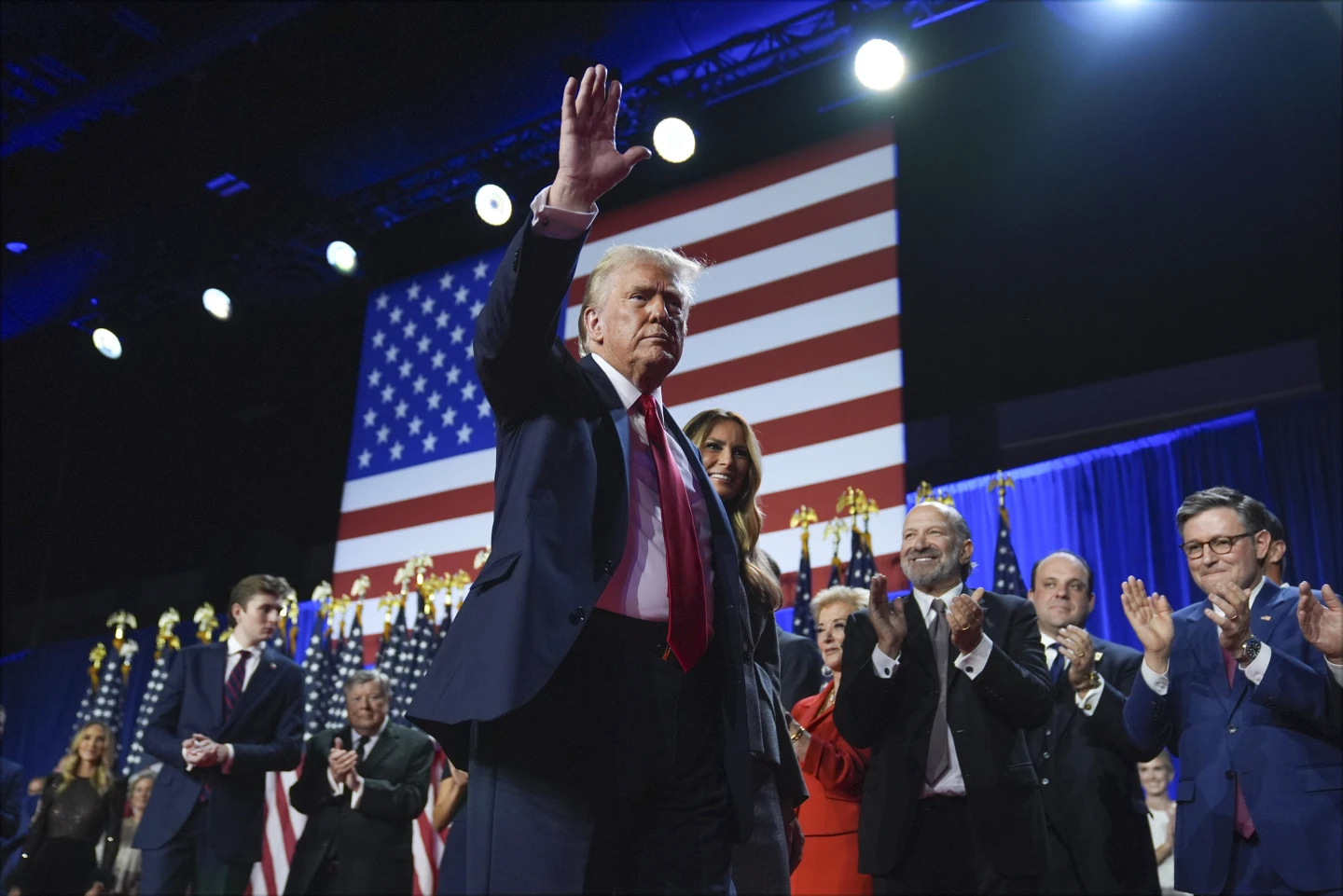Trump wins second term
By Zach Holland, '28
Tweet
The 2024 election is in the books, and Donald Trump has won a second term.
According to all the talking heads in the media, this election is one of the most important in American history. This election is for the future of democracy, and the result is going to change the course of America forever.
Many know how important this election was for America, but what does it mean for us? As students, what does it mean for our future? What does it mean for our bank accounts, our ability to find jobs, and our mental health? That’s what I sought to find answers to, and I think I have some fairly concrete ideas.
I interviewed two amazing professors here on campus, Dr. Furth and Mr. Haney. I had wonderful and very productive conversations with them both. They’re both a lot more qualified than I am to answer these questions, so let’s dive in.
What does this election mean for the students here at TAMUG? From both interviews, I gathered that students around campus are nervous about the outcome.
For instance, in my interview with Dr. Furth, he said, “I know some students are anxious about what the results will mean, about what it means in terms of society, and there’s definitely social anxiety. But having said that, I would not have necessarily known there was an election from day-to-day interactions.”
This tells us that while feelings may be intense in social environments, students aren’t necessarily changing the scope of their daily lives just because of this fear that’s permeating this election cycle.
One of the biggest things surrounding this election cycle is the economy. Are we going to be able to find a job? Are we going to be able to buy a house one day?
Mr. Haney had some intriguing thoughts about some of Trump’s potential policies. “I think its going to be a very challenging environment economically. Mass deportations are going to leave massive holes in the labor market, and when there’s a shortage of labor, wages go up, but when wages go up, inflation goes up.”
This could mean that the job market will crash, especially for low-skilled labor since these higher wages mean that companies will be less willing to pay for low-skilled workers, which can mean collapse everywhere.
Keeping on the point of the economy, Trump’s tariff plan could also mean disaster. Dr. Haney mentioned that “The United States does not have enough people or capacity to produce everything we consume. We have 4% of the world’s population, but we consume 25% of the entire human production. Global GDP: Americans consume 25%. We cannot physically produce everything we consume here. So the application of tariffs across the board, generally applied, will lead to hyperinflation and a deficit. Couple that with mass deportation; that’s chaos.”
This could also lead to a shortage of available goods, so coupled with a massive labor shortage, and hyper inflation, Trump’s ideas for restoring the American economy are massively flawed.
This means that on paper, Trump’s plans sound like they can fix everything that the Biden administration did wrong. However, when actually applied, that could spell doom over the next four years as Trump makes these decisions final.
One of the other big focuses of the Trump campaign is the appointment of Robert Kennedy Jr. to “Make America Healthy Again," but what does this mean? What could this look like for us as some of these policy ideas actually begin to see the light of day?
Mr. Haney exclaims that “There may be some moves that might be positive, like getting plastics out of the diet, but the problem that they are facing is they overruled Chevron Deference, which is the ability for departments and agencies to create rules to enact statutes.”
In turn, Mr. Haney said that this oversight could be a roadblock to some of the things that this campaign might want to do.
This election told us a lot about the shifting landscape of American politics.
The Harris campaign built itself on celebrity endorsements and things like concerts and other events to try and land some of the youth vote, but it didn’t end up working how they wanted.
It goes beyond this though; Dr. Furth said that “this was more about the majority of Americans wanting a specific, more charismatic individual instead of the usual policies represented by that candidate.”
He goes on to say that “They (Americans) wanted some of it with the values regarding immigrations and changes in social norms, which I think is all part of that anxiety that we’ve seen with everything from notions of social values changing, mixed with a repetition of an old cycle regarding immigration that goes back to at least Reagan.”
He goes on to say that “some of it was choosing those things, and some of it was choosing specifically that individual.”
We learned in 2016 when Trump got elected the first time that Americans were tired of the traditional politician, and Trump being the “anti-politician” worked.
Perhaps Americans got tired of this “anti-politician” and elected Biden in 2020. Now we’re back at square one.
Americans are tired of “traditional politics" and may want this idea of an "anti-politician" back, and thus Trump being reelected.
So, what did we learn? This election is historic for many reasons.
The amount of change that will be seen over the next four years, negative or positive, is likely going to shape America forever. So strap in and brace ourselves for one hell of a ride.
![]()
More:
News